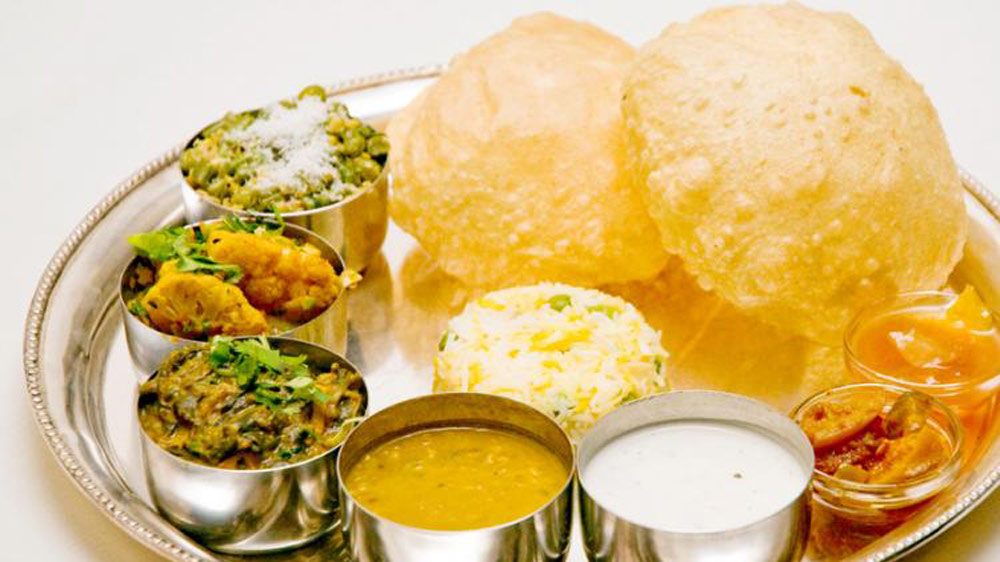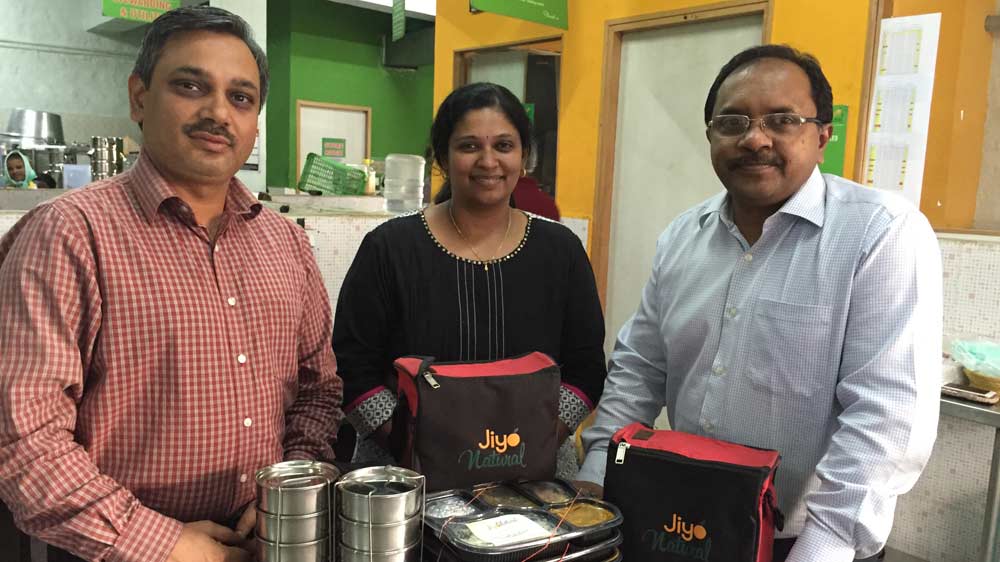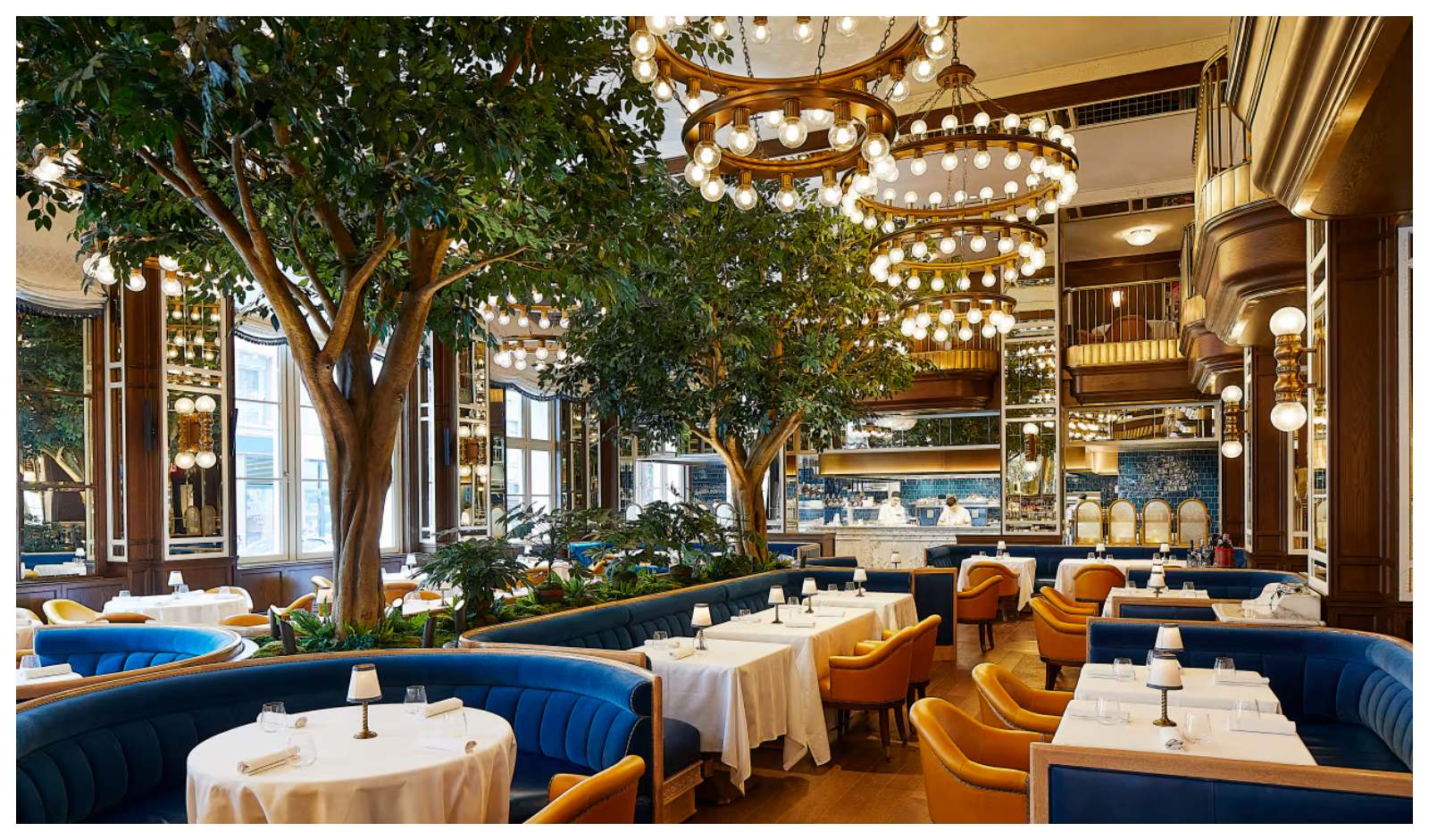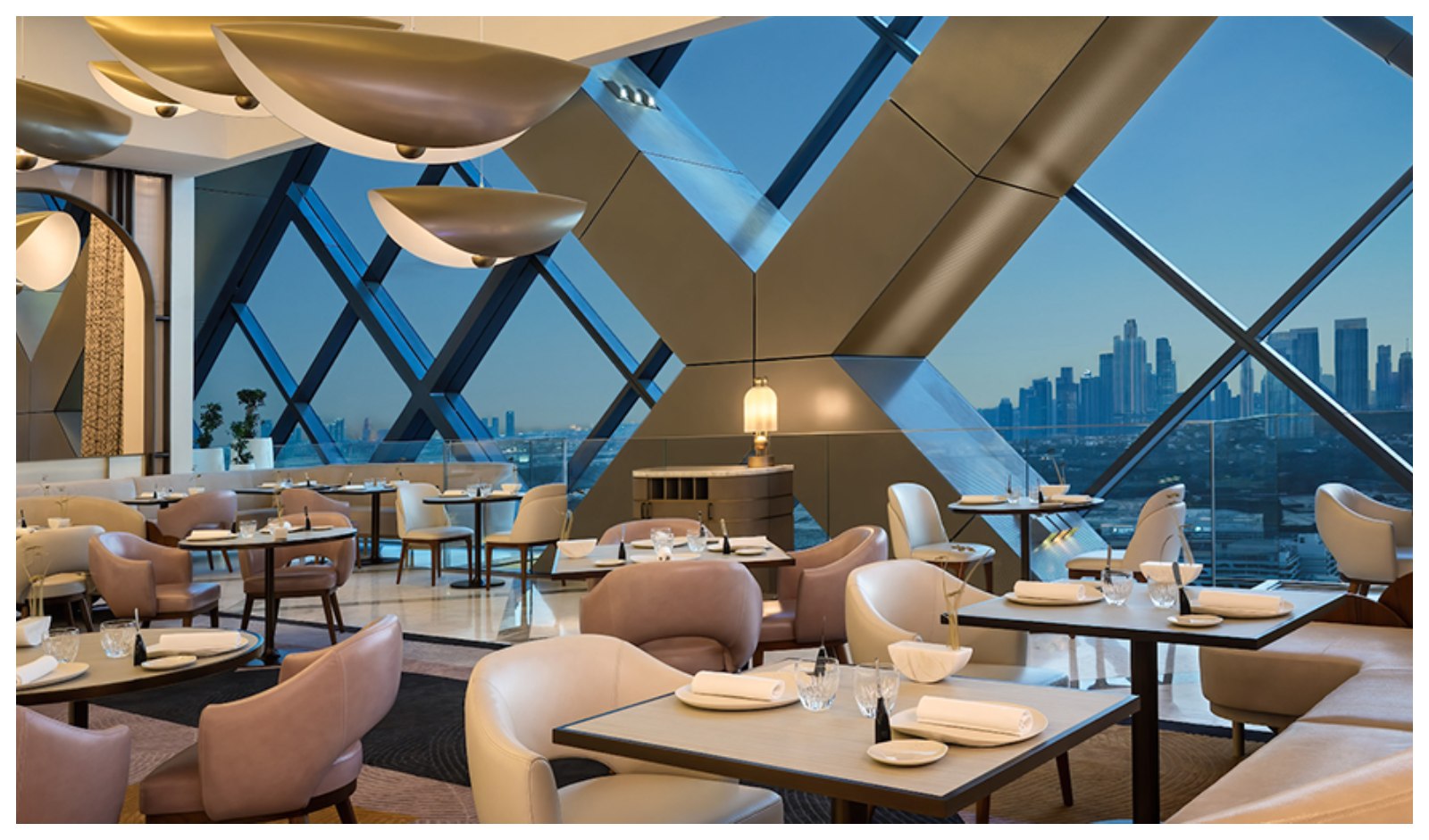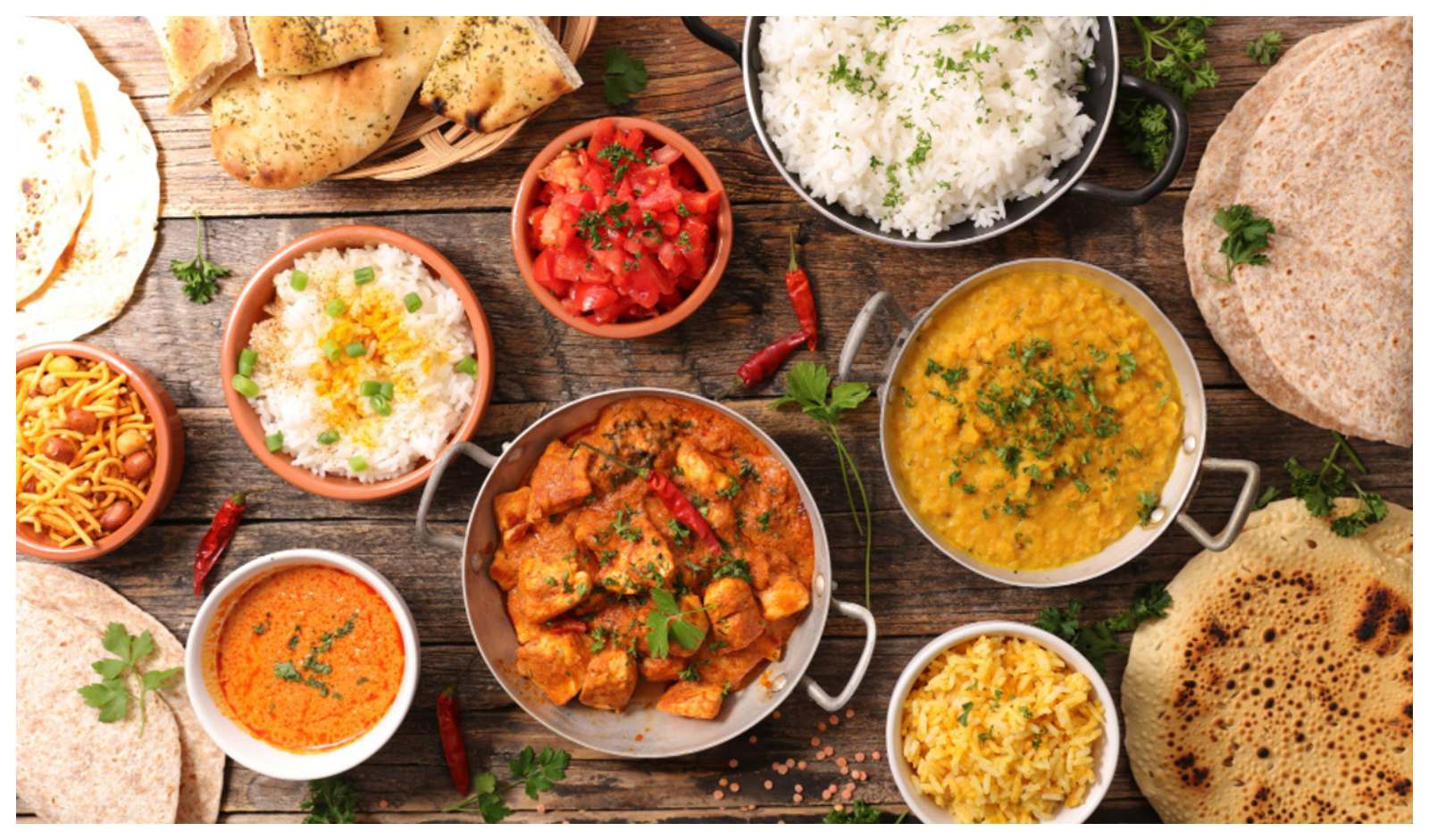
Our food industry comprises of various kinds of dishes and with that creates so many challenges too. After exploring the problems that existed in the market and how we can overcome it. Anshu Raj started Caterspoint which is a unique concept that focuses on the product and how they can personalise it for the clients. Caterspoint is all about Handcrafted Food in India. The idea was to create an innovative and guiltfree food that will give a new meaning in the food industry. Excerpts from the interview:
What was the whole idea?
We noticed that there was everything common that all other players were dealing with and the preparation time was very high. So, we decided to reduce the prep time as much as possible. We started to improvise with the categories giving them new flavours and adding different ingredients to it. This has created a demand to try something different. At home, deliveries are not very convenient when it comes to services. Therefore, we also focus in providing personalised services with surprises like freebies and hand written notes. This will create a special bond between us and the clients.
You have worked with brands like ITC and have also worked with start-ups like FRSH that catered to the young crowd serving fresh salads etc. How are you incorporating all those experiences to cater to your customer?
ITC and Frsh are two very different concepts. My learnings in both the organisations were worth experiencing. Starting with ITC, I had a chance of enhancing my culinary experience. This is a place where you directly come in contact with your clients. You actually get to talk to them in person and give them a fine dining encounter. Whereas talking about FRsh it was a start-up when I joined. I got to learn so much from the founders of the company as both were IIT pass outs. This was a home delivery concept which wasn’t very popular then. People were very sceptical about ordering food at home without even experiencing the ambience or the hygiene and also the methods used to prepare food. It was very challenging initially, to gain confidence of the clients and this is where I gained so much knowledge about the business, it’s various healthy products, health market, AOV [ Average order value], Market reactions, packaging [ leak proof, bio degradable and eco- friendly], funding and investment and also how to create a positive delivery system and experience among the people.
All these experiences made me build Caterspoint, where I worked up on the drawbacks of the delivery system and other major issues that we can overcome.
What is the model? How does it work?
Our business model is home delivery model. This is basically reached through online delivery apps such as Zomato, Swiggy and UberEATS. Also, we have a website www.caterspoint.com from where people can order. Everything is online based and every order is place online. Very soon the very popular and the one of the largest company Amazon is going to enter the food market with online delivery system. We do have plans to introduce ourselves and connect with Amazon for a long term business.
Who are you targeting as your customer?
We have two segments of Clients that we basically have targeted- Corporate Clients- Companies and start-ups. This includes all kinds of organisations and it has high demand for bulk orders. Individuals- This includes everyone. Age factor- 18-60 years. Such as, health freaks, foodies, bloggers, students, kids, families and many more.
Why there is a sudden demand of gluten free, vegan food in the market?
Gluten free and Vegan food is very popular these days. It is healthy and helps maintain a balanced lifestyle. As we live in an environment where there is so much of pollution and people are in to a lot of contaminated and adulterated food. Our immunity is decreasing day by day and so we need a good and balanced diet to make it up for it. Gluten free and vegan diet is a way to regain a healthy body and nourished lifestyle. It helps fights diseases like cancer and diabetes and also cardiovascular related.
What is your presence. How does expansion look like?
Currently we are situated in Delhi – Malviya nagar and Dwarka, and in Gurgaon and Sohna Road. Soon we will expand ourselves in Noida. We are also deciding to enter Chandigarh and Bangalore by next year.
What is the average order that you do on a weekly basis?
We do around 3500- 4000 order weekly. We have a target to touch approximately 30000 orders per month by next year.

India’s F&B space is brimming with young entrepreneurs. From new food products that tackle sustainability to those longing for authenticity, to those catering to the health conscious market, the market is full of innovative ideas and visions of how India can eat and drink better and healthier. And in the first season of Shark Tank India, F&B entrepreneurs created a wave bagging most of the investments from the sharks of the season.
Infusing jet fuel into the country’s start-up culture, the show connects entrepreneurs with angel investors or sharks. The founders pitch their business and growth plans to the sharks, in the hope of raising funds. The Shark Tank India judges include Aman Gupta, the co-founder and CMO of Boat; Vineeta Singh, CEO & co-founder of Sugar Cosmetics; Anupam Mittal, founder and CEO of People Group, that owns companies like Shaadi.com and Makaan.com; BharatPe co-founder Ashneer Grover, Ghazal Alagh CEO and founder of the skincare brand MamaEarth; Peyush Bansal, the founder and CEO of Lens Kart and Namita Thapar, CEO of pharma company Emcure Pharma. While there are many food and drink companies that drew the attention of the audience, here are a few which was appreciated by the sharks, got the best deals and gave fantastic business ideas to the budding F&B entrepreneurs.
Bluepine foods
The Delhi-based food company founded in 2016 specialises in frozen momos with traditional Himalayan ingredients. The company also runs Yangkiez, a line of momo QSRs based out of Delhi. When founder Aditi Madan moved to the capital years ago, she deeply missed the flavours of the Himalayas and her home. This prompted her to launch her own company that tapped into India’s love for momos. Bluepine bowled over the Shark Tank India judges Aman Gupta Vineeta Singh and Ashneer Grover to secure funding of INR 75 lakh for 16 percent equity of her business. But for Madan, this was not her first instinct in the television industry. Madan was seen in Masterchef India where she was highly appreciated by Chef Vikas Khanna.
The company started with four products (like momos and spring rolls) from local resources but are now making around 35+ variants. In the last five years, they have made around 80 lakhs momos and have been providing it to multiple hotels, restaurants and cafes across India.
Sharing more on the same, Madan commented, “It’s been five years since I started my business. However it’s the first time, I’ve got the chance to present my start-up in front of such experienced businessmen who also started from scratch. Being on Shark Tank India is, truly, once in a lifetime experience for me! Not only is it opening doors for my business but is also helping us to reach one step closer to our mission of creating a sustainable future when it comes to food. I am really excited to see the kind of traction my business will get after the show. More than that, I am really grateful to the sharks for giving their time and believing in our venture.”
Skippii Ice Pops
The first business idea to clinch investments from all sharks on the show. Skippii Ice Pops was presented by a Hyderabad-based husband-wife duo. Flooring all the judges on the show with the taste and packaging, the ice pops are available in a range of flavours in RO water and have absolutely no preservatives, flavours or colours. Anuja and Ravi Kabra managed to get INR 1 crore for 15 percent of the equity
Banjara Hills-based Skippi Premium Ice Pops claims to be India’s first ice pops brand. Ravi Kabra, co-founder and CEO; and Anuja Kabra co-founder and COO; share that to produce high-quality products that are clean, green and healthy, they worked towards bringing down the intake of artificial flavours and colours to zero.
Kabra said that they feel like mini-celebrities now. “Whenever we walk into a restaurant, are at any public place or even at our office, people walk up to us and want to click pictures with us. We have achieved something phenomenal, I’d like to believe so.” They have the vision to present their brand on IPL t-shirts for promotion
CoCoFit
CoCoFit made the most humble impression on the show. Seeking an investment of only INR five from each shark, its founders left no stone unturned to make their time on the show worthwhile. Shashi Kanth, the founder, commented while introducing his business, “Simply put, coconut meets fitness here. We make and sell close to 135 products that are made of coconut and its by-products. From coolers and slushes to shakes and ice creams, we have them all.”
On how they landed on the show, he shared, “When we came across a notification of Shark Tank India, we applied for it and got to know that we were selected during the initial screening. We then got through phase two and finally the audition. We were already doing brisk business, and now, Shark Tank has helped us get more investors. Rather than getting into negotiations, we decided to give it away for free. It was like us buying three sharks. Based on the traction we received, we had close to 2,800 franchise requests, that’s huge!”
Nomad Food Project
Nomad Food Project is a jam brand specialising in bacon thecha. The founders of this jam brand, Aditya Rai and Advaith Inamke, have asked for INR 40 lakhs in exchange for 10 percent equity of their company in Shark Tank India.
The global jams and preserves market is expected to reach 8.46 billion dollars in 2021 and its rate is growing significantly, by 2026 it may reach 9.87 billion dollars. Many brands are already present in this domain such as Kissan Jam, Bhuira Apricot Jam, La Vieja Fabrica Apricot Mermelada, etc but Nomad Food Project have been able to keep its identity distinctive
“ We are disrupting the jams market as no one has done savoury jams before us, especially not anything with meat and it's really amazing to see people try it for the first time and go nuts! That feeling can only be felt when the products themselves set you apart more than anything else. However, with our thechas we have managed to hit the condiment market out there too. Our thechas are mean alternatives to the same old pork pickles that we've all tried at some point or the other,” Advaith Inamke, co-founder commented.
Interestingly, Rai and Inamke started Nomad Food Project as a research topic while graduating from IHM Mumbai, doing their bachelor's in hotel management. “We’ve always been attracted towards trends that are out of the box and hold the capacity to change consumer trends,” Rai commented
Wakao Foods
Wakao Foods, a jackfruit-based vegan food brand has become India’s first startup to be backed by all three female sharks on Shark Tank India. The brand received funding of INR 75 lakh for 21 percent equity from SUGAR Cosmetics, MamaEarth, and Emcure Pharmaceuticals in the 1st edition of Shark Tank India.
Founded by Sairaj Dhond, Wakao Foods is a sustainable brand that aims at bringing plant-based ‘Ready to Cook’ and ‘Ready to Eat’ products to the Indian market. Wakao’s current offering of jackfruit meat is ethically sourced and hand-picked from farms and hygienically manufactured. The jackfruit has been an obvious choice of product for its versatility, meat-like texture, and nutritive value (high in fiber, low in calories and fats). All Wakao products have no preservatives with a shelf life of one year and require no refrigeration.
Sairaj Dhond, founder of Wakao Foods commented, “As someone who grew up watching Shark Tank, coming on this globally acclaimed platform and getting funded has been a great milestone for me and my team. This further solidifies our belief and efforts to introduce innovative and disruptive F&B product categories that will change how consumers perceive plant-based meat. We are looking forward to aggressively expanding our footprint in the next few months and acquiring a bigger clientele in the industry.”
For Wakao Foods, the sharks that have come along on this journey with them to create the perfect amalgamation, bringing in key expertise that will drive and expand the business multi-folds. Emcure Pharmaceuticals, currently present in 70 countries will open doors for the brand to export its products across the world.
In a Can
One beverage company that attracted too many eyeballs was In a Can cocktails. Entrepreneurs and hotel management graduates Sameer Mirajkar and Viraj Sawant dreamed up their company in the middle of the pandemic. The canned cocktail company offers low-calorie cocktails that are ready-to-go and easy to consume, with flavours that include rum latte, whisky collins, gin and tonic and more. The partners asked for INR 50 lakh rupees for two percent equity in the company but ended up getting a deal of INR one crore for 10 percent equity from sharks Ashneer Grover, Aman Gupta, Namita Thapar and Anupam Mittal.
“The idea of In A Can came one evening at a house party when Viraj and I realised that people were bored of the same fizzy mixers, beers and juices. They wanted to have cocktails but either did not have the ingredients or the know-how and equipment,” said Mirajkar. “Immediately we knew there was a need in the market for some quality cocktails and a new drinking experience.”
It ticks off other boxes for weight-watching millennials these premixed cocktails use natural ingredients with very little sugar and no preservatives or artificial sweeteners. As a result, each can has less than 100 calories.

Delhi is all set to welcome its first international club, lounge & fine dine property Lithiyum at Hotel Ashoka by mid July.
Customers can indulge in three of the five basic sense, Sight, Sound, Taste right here at Lithiyum- where customers will come to get charged. With its most professional sound system in the world (yes, in the whole wide world), feel the pulsating beats and let your body groove to them.
The property is divided into three sections: Club, Fine Dine & Open Hangout Café/lounge. Lithiyum is a never before luxurious amalgamation of a superior fine dine, gastro pub nightclub and a cocktaileria.
“We wish to give the city a place where they can party and hangout in a complete international ambience with electrifying music and delectable food, that’s how Lithiyum came in our mind. With all the world class music system, lights, ambience, fusion food it will definitely be the NEXT BIG THING in the Delhi Hospitality culture” says Saurabh Katyal, M.D. Lithiyum.
The place also has indoor waterfalls that will put customers in splendid mood to relax and rejuvenate. The hangout room and fine dining areas are an extension of this splendid relaxation.

Food is something which people relate to their well being. No matter how bad the situation is or how dry the market is food is never going to die. And, as people these days travel a lot and their life style is highly motivated by international trends, they no more wants to eat junk. Today, people are looking for home cooked foods and their similarities at restaurants. And, they want t order these kinds of foods from online players who have started this trend by offering the customers the kind of food they want to eat. And, forced by these cultural preferences restaurants is also taking the same route by introducing simpler food and menu for customers who are always on travel and need home style cooking to suffice their need.
“We have got overwhelming response and our fan following has been increasing by the day. People sometimes get nostalgic about the whole experience. They relate it to the home-cooked foods by their mothers and grandmothers,”shares Yogesh Magar who started Wah Marathi to serve traditional Maharashtrian food. Magar came up with restaurant after experimenting almost 400 dishes, and took four months to filter them.
Everybody knows menu is very important part of the restaurant design. You never know when your customer will say he does not like this particular food or the spices were a bit strong in this particular meal. And as customers today have become more health conscious one needs to have a look at that market as well especially at people who are travelling a lot, who always eat out and are very health conscious because they are travelling all the time and they can’t eat junk all the time. “For customers like them we do something which is very similar to ‘Ghar Ka Khaana’. So, we are evolving, we change the menu according to the need of our guests. We can’t force them to eat what we cook... we are there to listen to their demand and we continue to evolve,” adds Chef Ajit Bangera, Senior Executive Chef- ITC Grand Chola.
Menu for a restaurant is soul of the brand. A good menu can make a restaurant whereas a bad food can break it. Hence, you can say that food is the journey that one takes from his culinary experiences. Commenting on the same, Sharad Sachdeva, CEO- Lite Bite Foods adds, “Menu of Punjab Grill is the soul of the brand. Punjab Grill aims to take you on a culinary journey into the grandeur of undivided Punjab. It is an exploration of the wonderful diversity of the Frontier Food and rich streams of Hindu, Sikh, Pathan and Punjab cuisine; a tradition flown downstream through the immigrants of West Punjab, who have lovingly cherished and preserved it,” adding that From Salmon Tikka to Tandoori Guchchi, from Champ Taajdaar to Raan-E-Sikandari, the restaurant offer a huge spread of some of the best North Indian cuisines that takes you beyond the typical dal makhni and butter chicken.
And, with all happening around food and travel we can say that there are lots more that can be seen and witnesses in the food business. Today, restaurants are no more treated as a place to celebrate or go on a dream dinner date...instead it’s become the next home to be.

What made you start Jiyo Natural?
The need of having healthy food is growing every day. We are trying to balance health and taste without compromising on food quality. We don’t use any colour, no preservatives, no colour enhancer anything. Whatever we use is completely natural and that’s our core philosophy to use complete natural ingredients. For example, we make bake vada pav. We make sure food is healthy and today people are looking at healthy meal, which they get at home which is free from any kind of chemical. We are on a ride to make food balance and healthy. And, that’s the need of the people who are more and more health conscious today.
Do you have special meal plan for special people?
We also can take care of the people who are a patient, for example if somebody is diabetic we can provide a wholesome customise menu for them- if somebody has high level of sugar we would normally try to know what are the conditions they have so that we can customise the kind of food, quality of food and the quantity of food as well.
We think people get bored of the same food every day. How often do you customise your menu?
One thing that People want to look for is variety these days, even at home we look for variety every day. So, we keep changing our menu every 4th week.
What are the different kinds of cuisine you are serving?
We are serving North Indian, South Indian, and we occasionally do Chinese and Continental food. We are not a food start-up, though we are serving food and our core is food but we are a wellness start up on a ride to provide healthy food.
Who are your target customers?
We are catering to the IT companies because that’s where customers are and in Bengaluru we have majority of population from north who are working at these hubs.
You have raised funding from IAN in September. Where can we see those money being invested?
We invested them on marketing and advertising. We acquired another company called Sangeeta Aahar more from the capacity purpose to increase the number of orders. And, with this we have now capacity to do 5000 orders a day.
What are the orders that you do today?
We are doing around 3500 orders daily, our funding has actually helped us grow the business. We are growing at 20-25 per cent month on month.
How about entering to other cities?
Next round of funding we will be using on two slabs- there have been a lot of demand from other cities so we will be looking at three cities to enter and now that we know how to expand, R&D and all is in place we will cater to more customers.
Which are the cities in your radar?
In next three months we will enter into cities like Hyderabad, Chennai and Pune to begin with. And, why we don’t want to do Delhi and Mumbai market because we will do that in second phase and there are already quite a few layers in these markets so there is tough competition.
When can we see the next round of funding happening?
We are talking to VCs and angel funding companies. Hopefully, we should get some funding in next two months but we will reveal it in next six months.
What are the plans other than expanding geographically?
We are also going to other healthcare providers to get their customers on board. Companies who are into healthcare, they have a clientele who need good food as per the meal plan given to them and we will now focus on them.
What is your average ticket value?
Indian customers want value for money meal. We have an average ticket size of Rs 100- 150 per meal.

Replying back to the HSBC report that halved Zomato's valuation, Deepinder Goyal, Founder & CEO of Zomato has written a mail to its 2100 employees globally saying that they are market leaders in about 18 countries today.
Citing that the investors are bullish about their company and willing to invest in the company further, Goyal also shared that there company is growing at (>50%) of business to some of the biggest restaurant names in the country.
“The report claims that we have low market share. Our internal data shows that we drove a large percentage (>50%) of business to some of the biggest restaurant names in the country. Our traffic in India, our home market, also grew 8% in April 2016 over March 2016. We have over 8.5 million monthly unique in India alone – very few Indian companies can claim that much traffic share in a single category. Also, we are currently present in 23 countries, and we are the market leaders in 18 of them,” Goyal added.
According to the HSBC report it also mentioned that the company needs to invest in their online and delivery business, but Goyal disagreed to the report claiming that the restaurant search engine site has hit 33,000 online orders yesterday – at their average order values.
“We already are profitable in the order business at a unit economics level, and the overall online ordering business will hit profitability when we get to an average of 40,000 orders a day. We should get there in the next 3-6 months. Also, there isn’t any food delivery company in the world which owns its last mile logistics fleet, operates at scale, and is profitable. These assumptions and statements in the HSBC report make it look like they’re coming from someone who doesn’t – and hasn’t bothered to – understand the space well,” Goyal added further.
Citing about the US operations it said the US is an overcrowded market, and we will not be able to make inroads into the US. HSBC, because it never spoke to us, doesn’t know that we didn’t acquire Urbanspoon for its US presence.
“We acquired it for Australia and Canada, and our traffic is kicking ass in these two markets. We are monetising the traffic in Australia already, and Melbourne and Sydney are already in the top 5 revenue generating cities for us across the world,” Goyal clarified.
Going forward Goyal also claimed that revenue has doubled over the past 9 months. Costs have been rationalised. “Burn is down 70% from the peak – it was high because we were experimenting with various business models and geographies, which we have cut down drastically – and we are now focused on the large opportunity in front of us in our core business and core markets,” Goyal elaborated.

Tell us something about your company? How long has your company been in the business?
deliKitchen.in was started in August 2014. deliKitchen.in is collaborating with homemakers, professional chefs and restaurants on one platform to delight the taste buds of customers from every financial background. deliKitchen.in is poised to become fastest growing food tech startup in India. We are obsessed with technology and want to leverage it to get closer to our customers.
What are the exclusive offers you provide?
deliKitchen offers standard veg and non veg meals from multiple basket of home makers, tiffin service, vendors and restaurants like Preetto Kitchen, Deli Kitchen, GeetaRasoi etc. International cuisines, continental, health, diet and diabetic food is also offered by some of the vendors.
What packaging techniques do you use to preserve freshness and purity of products that you supply?
deliKictehn doesn’t use preservatives, we serve fresh food to our customers.
What are the return policies at your end?
All of our meals are backed by 100 percent customer satisfaction guarantee. If customer is not satisfied with a meal for any reason, they can contact us within one day after delivery and we will either replace the meal or credit the purchase price for that meal. However, for same day orders, customers can cancel within 30 minutes from the time of order for 100 percent refund.
How do you decide pricing for the Indian market?
deliKitchen.in is the platform to delight the taste buds of customers from every financial background and hence we have ‘complete food’ ranges from Rs 60 to Rs 2000. We keep very stringent quality control on our kitchens and we listen to our customer feedbacks.
From where do you source the products?
deliKItchen.in sources the raw materials from local market and super bazaars to cook the freshest food.
What is the supply chain process at your end?
deliKictchen.in sources the raw material, process them in kitchen under controlled environment, get the delicious food ready and then it reaches to the customers. deliKitchen.in takes the feedbacks and feeds-in into the process for possible improvements.
What is your expansion plans?
After successful completion of six months and reaching target of 200 orders daily within Delhi, we will be expanding to nearby cities and major metros.
What are your branding and marketing activities?
deliKitchen.in is focussed on getting good chefs and homemakers along with good restaurants on board. We take 15 per cent of order as commission from partners, for home kitchens, we provide delivery services too at additional cost to get customers we have many campaigns started as First order is free, it’s on us. We will delivery groceries worth your order along with second order delivery.

Bite Club was brought into existence in 2014 by three young engineers Prateek Agarwal, Aushim Krishan, merely a year after graduating from IIT along with Siddharth Sharma from NTU (Singapore). Bite Club was galvanized to fix the dilemma of access to delectable and appetizing food made with fresh produce. With an intention of solving the million dollar question of ‘What’s for lunch or dinner today’, Bite Club has conceptualized a platform by compiling a community of 100+ chefs spanning home chefs, recipe bloggers, ex- restaurateurs, professional chefs and many more. How the idea of starting Biteclub initiated?
The idea was born in sometime in April and formed towards July. The food was a big problem for all of us. When we are in Mumbai, we had a cook who used to visit us and cook food for us; we get bored of the food. And then we start buying food from outsides like restaurants which proved to be very expensive to us for regular eating. At home we don’t have to think about anything, quantity and quality is so good. And that’s how this thought was born.
What is the procedure of getting the chef on board with you?
We have our website where the chefs can come and partner with us. We have our own priority, cuisine, production capacity and availability. We share all this to chef and also have a brief session with our internal food team to see on this and give feedback to them.
What is the revenue sharing model between you two?
It is very confidential to our business.
Tell us about the business model?
We work on a daily changing menu. We have both Home chef and professional Chef on board. Customers can download the app and check the menu of the day. We have Schedule and ultimate ordering; they can do up to three days in advance.
Have you also tied up with housewife?
70 per cent of our chefs are home chef.
Are all your chefs are from Gurgaon only or any other cities also?
Currently we are in Gurgaon and later in south Delhi.
What is the percentage of orders you receive from apps and online?
70 per cent of the orders come from app and rest 30 per cent from online. We get over 800 meals order in a day, both lunch and dinner (combine).
According to you, what is the peak time for ordering of food?
We deliver only on peak time. 12-4 PM lunch and 7-10 dinner.
What is your expansion plan?
We are planning to enter in other categories like homemade foods as they are the best high shelf items. Geographical expansion will be Delhi-NCR and then head towards metro cities and later every city of India.
You have also raised funding recently. Where can we see those investments going?
The funding will be used in hiring great talent, building great technology and driving smooth operation.
Who are your target competitors in the business?
We see local and small restaurant chains as our competitors.
What is the major logistics challenge faced by the start-ups like you?
Infrastructure in India is broken, demand and supply are not equal, roads are weak and getting workforce for delivery in a competitive market like India is the major challenge.
What is the no of order you are targeting say in next two months?
1200-1500 orders by August-September
Are you planning for second round of funding?
Yes we are in talk with the investors for Series A investment. You will get to know when it happens.

Food tech, once a very revered phrase is now experiencing its own share of midlife crisis. It is still early days in Food tech l with boom just round the corner and Star Dust/Bust falling all over the place. And, in a couple of quarters the dust will settle in and give way to the stars and survivors.
Now if you are bitten by Food Tech bug and want to give it a shot nevertheless here a few pointers that may help you find yourself in good stead before you take plunge –
1) Have Game changer ideas, not discounts – Just for your information if you felt Discounts are a game changer, you are in for a terrible surprise. Food space needs value ads and not discounts alone. There are enough and more discerning customers who understand value for a Good quality Product or Service. Hence, focus on garnering value.
2) Get your team right – Right team is not just a requirement of Food Tech, but of any business. In these trying times in Food Tech domain a good understanding team member can bring in lot of courage and motivation. Remember, I mentioned above that surviving these times is also an achievement in its own respect.
3) Focus on Product and User Experience - With competition intensifying, customer loyalty looks like a thing of Archives. Get your focus on Product and the entire ecosystem affecting Customer experience. It will be good to have control of Customer Experience as much as possible, but getting right partners to get it done is as good and cost effective. Remember, Customer Experience doesn’t stop at ordering online, but when customers consume your product and says a Wow word ïŠ
4) Plan to grow organic – Luring customers with discounts and freebees has proven to be a disaster for Food tech. Do not fall in that trap. “Grow Slow: Grow Strong” we at FoodAbhi.com totally believe and practice it and follow it in everything we do.
5) Keep your head down and focus on customer – Your single most important asset will be your customer, so before taking the plunge understand what your Target market needs. Are there enough takers. If not don’t get discouraged, understand if there is a latent need.
For eg: When we started;FoodAbhi.com was and continues to be one of its kind Marketplace for Daily meals curating the highly unorganized Daily meal/Home Like meal business. We quickly realized that there is latent demand, but new customers are a bit skeptical in trying out something very new to what they had experienced all this while. Our perseverance paid dividends and FoodAbhi is quickly transforming the way Mumbaikars look at Daily meals with a scaleup in Pune shortly.
6) Make sure you have the Working capital figured out – In the current scenario and as a fellow entrepreneur I will strongly recommend new entrants to figure out their Working capital for at least a year. No wonder how good the idea is if you can’t survive, you can’t prove the potential and can’t raise funds. So buckle up and tighten the strings from the word go and figure out what are essentials and good to haves from available resources.”
To conclude I wish to quote the famous movie “300”: “If the sun gets blotted with arrows: You got to fight in the shade” so get ready friends and be passionately practical. Cheers!!
About The Author:
Amit Dube is the Founder and CEO of FoodAbhi.com, an online Marketplace for delicious, hygienically cooked, daily meals which has more than 400 meal options across 50 food partners spread across Mumbai. FoodAbhi.com is trying to revolutionize the Dabba culture of Mumbai and make Dabba’s cool again.

Yumist, a full-stack food tech startup operating in the daily meals segment, has raised a Pre Series A round of $2 million led by Ronnie Screwvala’s fund Unilazer Ventures, with participation from existing investor Orios VP. Steven Lurie, a Valley based investor, has also joined the round.
This development comes as a validation to the food-tech sector which has received a lot of flak in recent times, with startups shutting shop and others slimming down their operations.
“Yumist is solving a core problem in one of the largest F&B markets in India. We liked the team and their approach to building the business. They come with the right skill sets and have demonstrated a good understanding of the market and solid execution capabilities”, said Ronnie.
Yumist was founded in November 2014 by Alok Jain, a technology entrepreneur and Abhimanyu Maheshwari, a seasoned F&B entrepreneur.
They serve home-style meals prepped in their own kitchens at price points of Rs 65+.
“The Unilazer investment is a vote of confidence for Yumist’s core value proposition and business model. We continue to be excited about the opportunity and the great team driving Yumist” said Sumir Verma, Venture Partner at Orios.
Having piloted it’s offering in select localities of Gurgaon until March this year, Yumist quickly expanded to all of Gurgaon, Delhi and Bangalore.
The funds from the new round will be used to build the team, expand its footprint and create a brand in a market where none exists.
Abhimanyu Maheshwari, Founder & COO at Yumist, said “While everyone was writing off food-tech in India, we kept our heads down and focussed on building a profitably scalable business while staying true to the customer problem. This approach helped us grow organically and maintain a low cash burn. We are super excited to have Ronnie on board, his experience and guidance will be crucial as we take Yumist to the next level.”

With new and emerging concepts hitting up the Indian food space, 2015 saw seventeen deals in the space with an increase in investment flow by 93 per cent to $130.3 million.
According to Chennai-based Venture Intelligence, food technology start-ups attracted $130.3 million investments between January and September 2015. The five deals in 2014 brought in $67.7 million and six deals in 2013 $42.06 million, reported Business Standard.
This year's top three deals are $16.25 million pumped in by Sequoia Capital, Nexus Venture Partners and Matrix Partners into TinyOwl, $16.5 million by SAIF, Norwest, Accel and DST Global in Swiggy and $60 million by Temasek and Vy Capital in Zomato.
Experts also said that food start-ups would continue to thrive for five years and the popular one will be Zomato, Quinto, ChefHost, MeDine, Momoe, DineOut, BigBasket, HalfTeaSpoon, Eatlo and Fresh Menu.
Investment in food start-ups rises 93 per cent in 2015 "We have seen immense growth in the last one year in Mumbai. TinyOwl has partnered more than 4,000 restaurants," said Harshvardhan Mandad, co-founder, TinyOwl.
"There is huge potential and more start-ups will grow substantially over the next five years with slight changes in the business model. They may be acquired early," said Vikram Gupta, founder and MD of IvyCap Ventures.
Online food delivery in India grew 40 per cent to Rs 350 crore in 2015 and accounted for 17 per cent of the online services market, according to the Internet and Mobile Association of India (IAMAI). Restaurant discovery portal Zomato launched its ordering service in April.
Investment in food start-ups rises 93 per cent in 2015 Hyperlocal delivery services, such as Roadrunnr, which received an investment of $11 million in June and Delyver, which was acquired by Big Basket in the same month, have latched on to this growth. "There will be significant value creation in online food ordering, and a mobile-only approach is the way to win. TinyOwl is a part of our broader portfolio of investments in local services and this will be an important area," said Rishi Navani, co-founder and MD, Matrix India.
According to Sarath Naru, managing partner of Ventureast, "We are staying away. One of the things we look at it is a business should have backward integration."
Valuation in the segment is another challenge, according to investors. "They are seeking valuation of three years from now. But competition is also increasing. People are realising if you are looking at 20 companies, you do not necessarily have to work with the one seeking the biggest valuation," said a venture capital investor.
Copyright © 2009 - 2026 Restaurant India.







